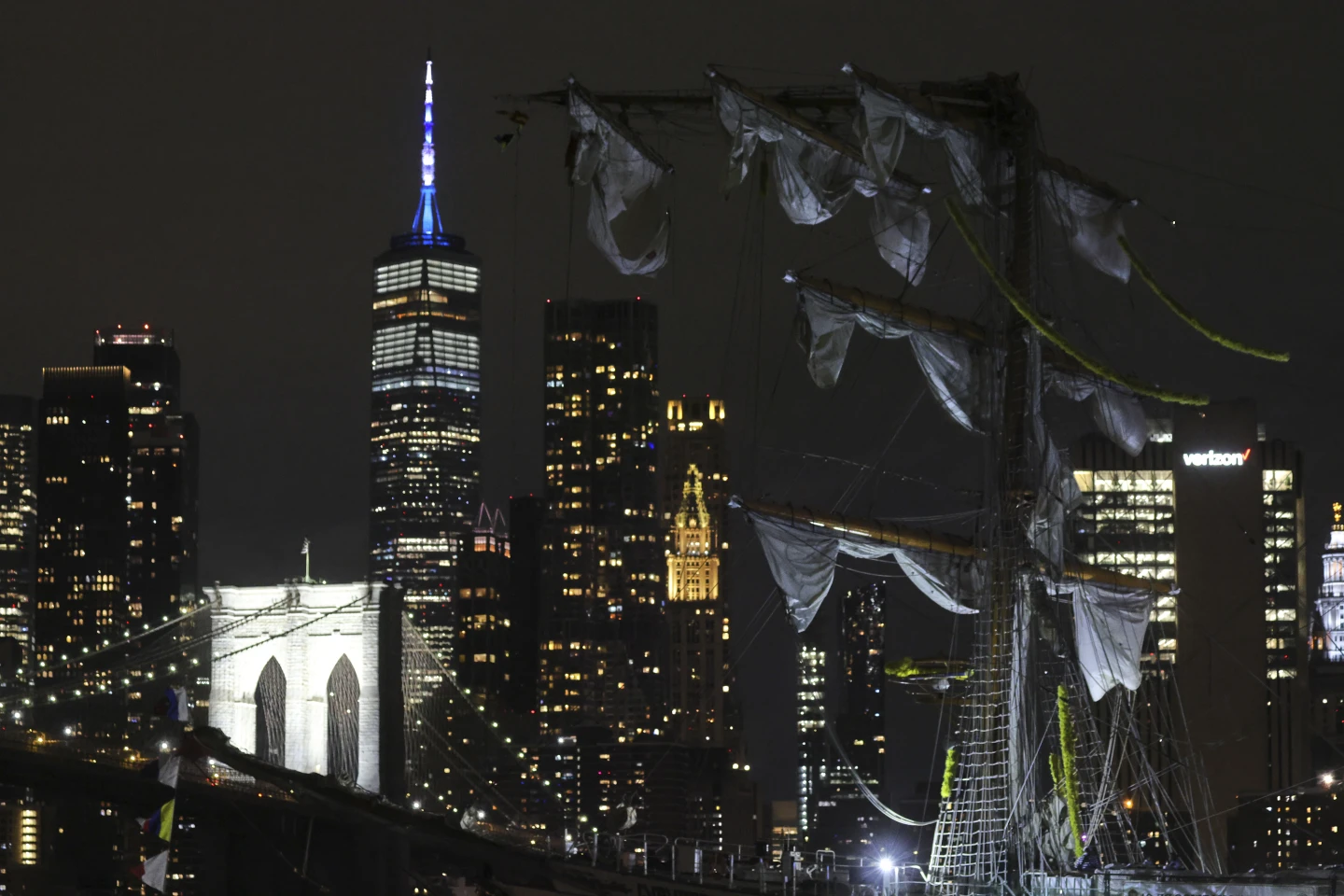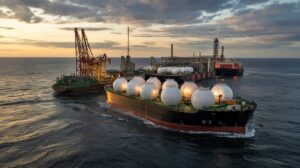In a shocking maritime accident, the Mexican Navy’s tall ship Cuauhtémoc collided with New York City’s Brooklyn Bridge on the evening of May 17, 2025, resulting in two fatalities and multiple injuries. The incident, captured on video and widely circulated on social media, has raised serious concerns about maritime safety protocols and the challenges of navigating large vessels through urban waterways.
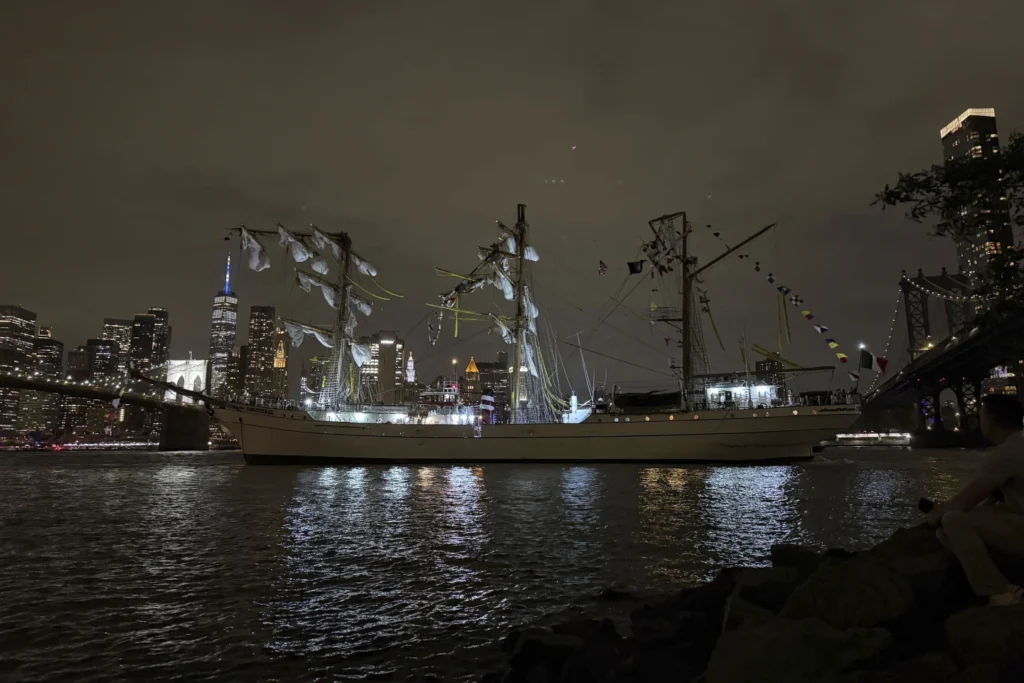
The Collision: A Routine Departure Turns Catastrophic
The Cuauhtémoc, a 150-foot-tall training vessel adorned with a massive Mexican flag, was departing from Pier 17 in Lower Manhattan en route to Iceland as part of a goodwill tour. At approximately 8:30 p.m., the ship’s towering masts struck the underside of the Brooklyn Bridge, snapping upon impact. Eyewitnesses described a chaotic scene as debris fell into the East River and crew members were seen dangling from the damaged rigging.
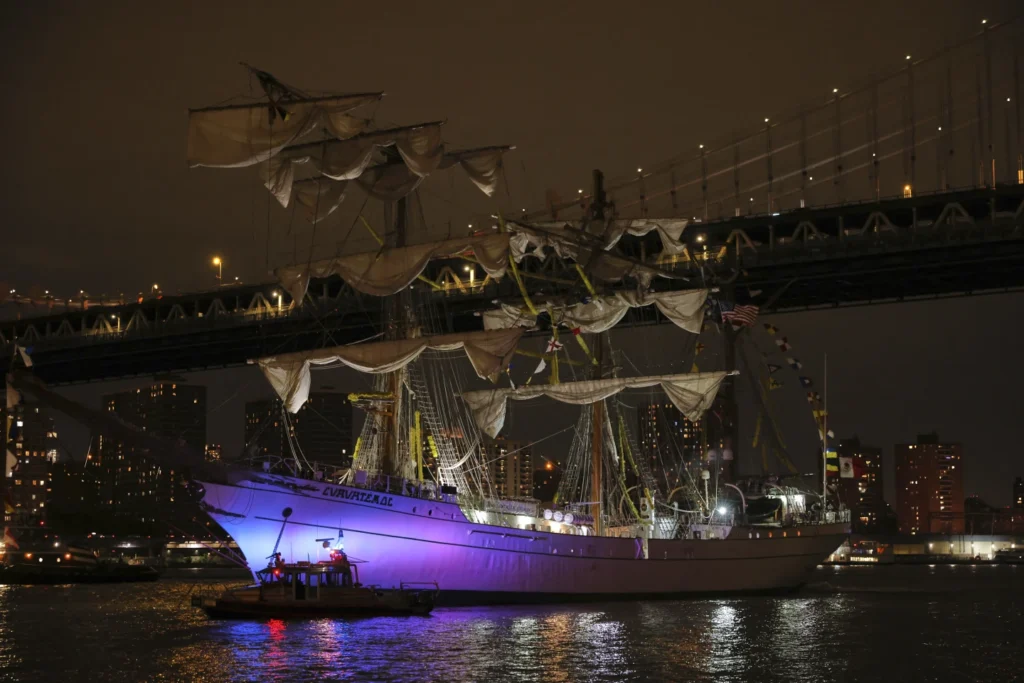
Initial reports suggest that a mechanical failure caused the ship to lose power, rendering it uncontrollable and leading to the collision. Despite the severity of the impact, the Brooklyn Bridge sustained no major structural damage and was reopened after an inspection.
Casualties and Emergency Response
The collision resulted in the deaths of two crew members and injuries to at least 22 others, with four individuals in critical condition. Emergency services, including the NYPD Harbor Unit and FDNY, responded swiftly, rescuing those trapped and transporting the injured to local hospitals.
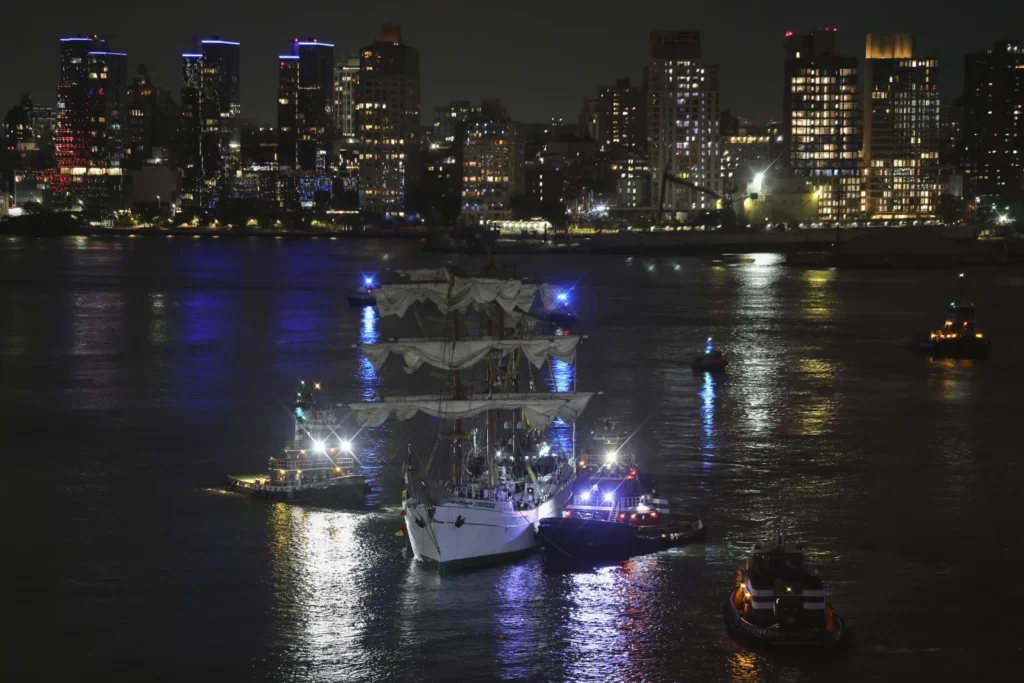
Mayor Eric Adams addressed the incident, expressing condolences to the victims’ families and emphasizing the importance of a thorough investigation to prevent future occurrences.
Investigating the Cause: Mechanical Failure Under Scrutiny
Investigators are focusing on a potential mechanical failure that may have caused the Cuauhtémoc to lose power and collide with the bridge. The ship’s masts, which exceeded the bridge’s clearance, were sheared off during the impact. The Mexican Navy has confirmed the incident and is cooperating fully with U.S. authorities to determine the exact cause of the malfunction.
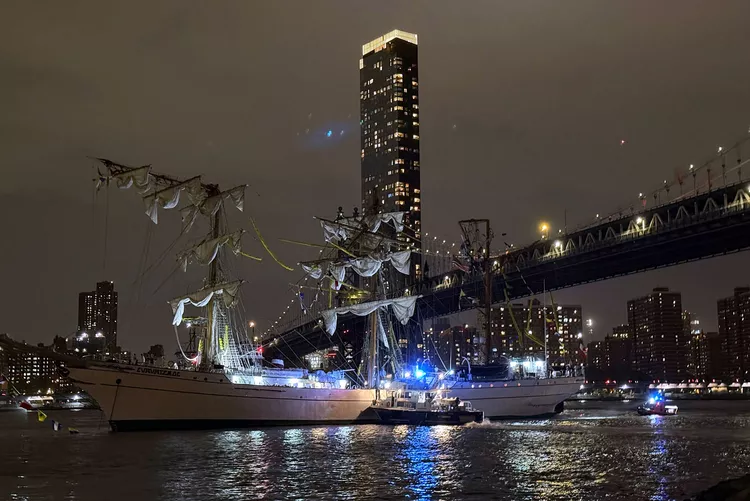
The Cuauhtémoc, built in 1982, is a training vessel used by the Mexican Navy for international goodwill missions. It had recently docked in New York and was open to public tours before the accident.
The Brooklyn Bridge: A Historic Landmark Endures
The Brooklyn Bridge, an iconic symbol of New York City since its completion in 1883, withstood the collision without significant damage. Engineers conducted thorough inspections to ensure the bridge’s integrity before reopening it to traffic. The incident serves as a reminder of the challenges faced by historic infrastructure in accommodating modern maritime traffic.
City officials have called for a review of navigation protocols for large vessels passing under the bridge to prevent similar incidents in the future.
International Repercussions and Future Precautions
The collision has prompted discussions between U.S. and Mexican authorities regarding maritime safety and the coordination required for international naval visits. The Mexican Navy has suspended the Cuauhtémoc‘s training cruise pending the outcome of the investigation.
As the investigation continues, maritime experts are advocating for enhanced safety measures, including stricter clearance assessments and improved communication between vessels and port authorities. The goal is to ensure that such tragedies are avoided in the future, preserving both human life and historic landmarks.
Conclusion
The tragic collision of the Cuauhtémoc with the Brooklyn Bridge has underscored the critical importance of maritime safety and the need for vigilant oversight when navigating large vessels through urban waterways. As investigations proceed, it is imperative that lessons are learned and appropriate measures are implemented to prevent future incidents.
Subscribe to trusted news sites like USnewsSphere.com for continuous updates.
[USnewsSphere.com / nyp]


